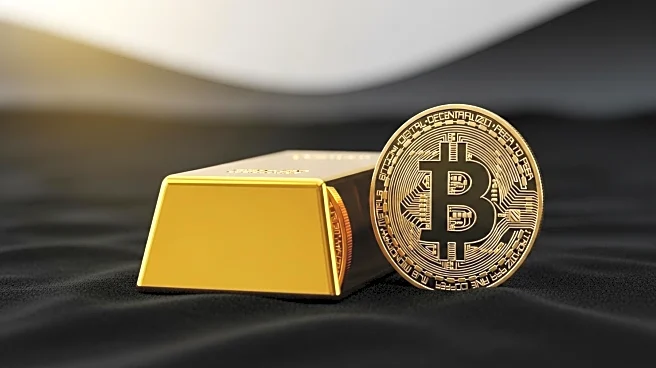What's Happening?
Retail investors are increasingly engaging in what JPMorgan describes as the 'debasement trade,' which involves investing in assets like gold and bitcoin as a hedge against economic uncertainties. This trend is driven by concerns over high government deficits, central bank independence, and the stability of fiat currencies. As a result, gold futures have surged by approximately 48% this year, reaching record levels, while bitcoin has increased by over 27%. The U.S. dollar, conversely, has depreciated by nearly 10% in 2025. This shift in investment strategy reflects a growing lack of confidence in traditional economic structures and a move towards alternative assets.
Why It's Important?
The shift towards gold and bitcoin by retail investors indicates a significant change in investment behavior, driven by fears of economic instability and inflation. This trend could have profound implications for the financial markets, potentially leading to increased volatility and shifts in asset valuations. The weakening of the U.S. dollar could impact international trade and economic relations, while the rise in alternative assets like bitcoin and gold may challenge traditional financial systems. This movement also highlights the growing influence of retail investors in shaping market trends and the potential for significant shifts in investment strategies.
What's Next?
As retail investors continue to embrace the debasement trade, financial markets may experience increased volatility. Central banks and governments may need to address concerns over economic stability and currency valuation to restore investor confidence. The ongoing rise in gold and bitcoin could attract more institutional investors, further driving demand and potentially leading to regulatory scrutiny. The outcome of these developments will likely influence future investment strategies and the broader economic landscape.











